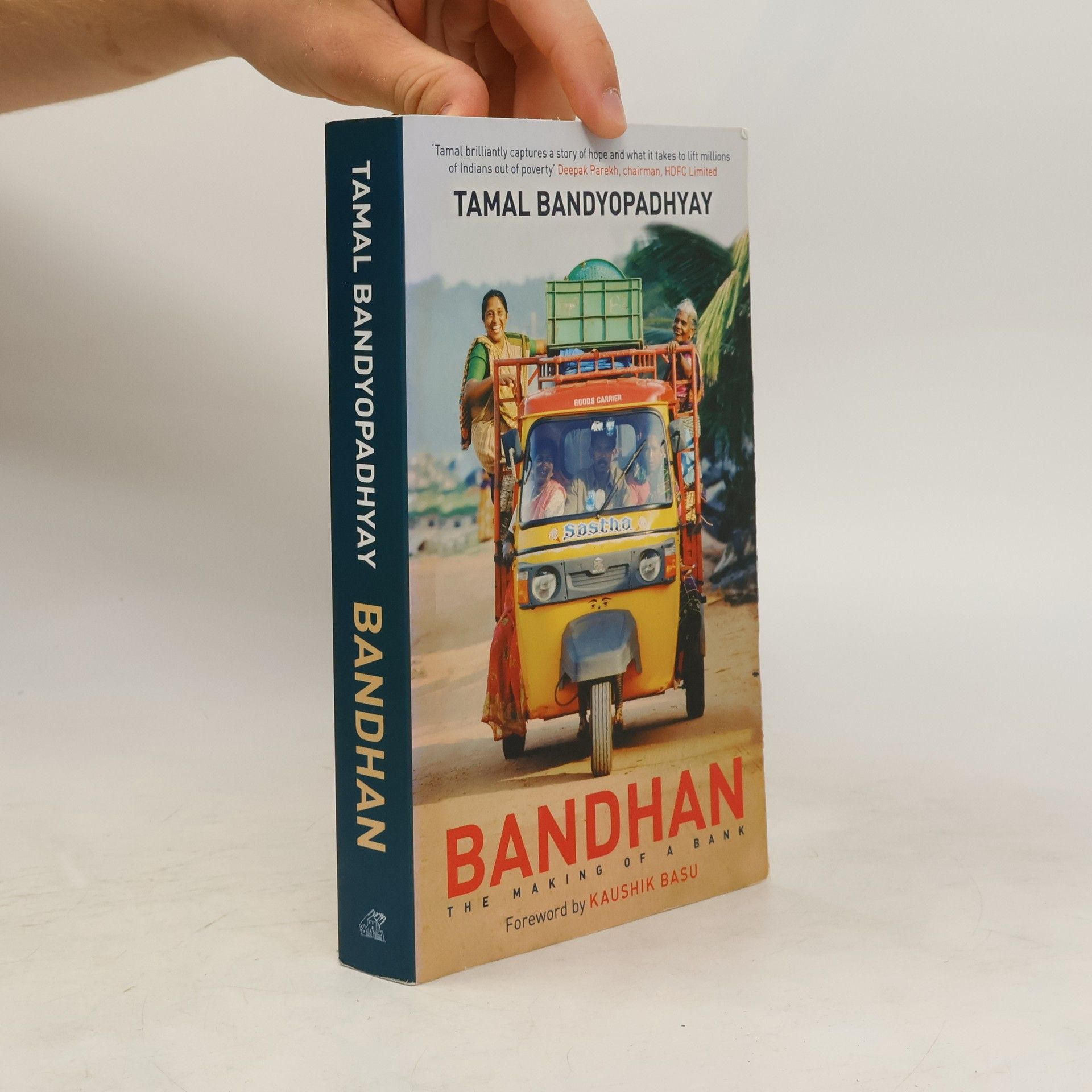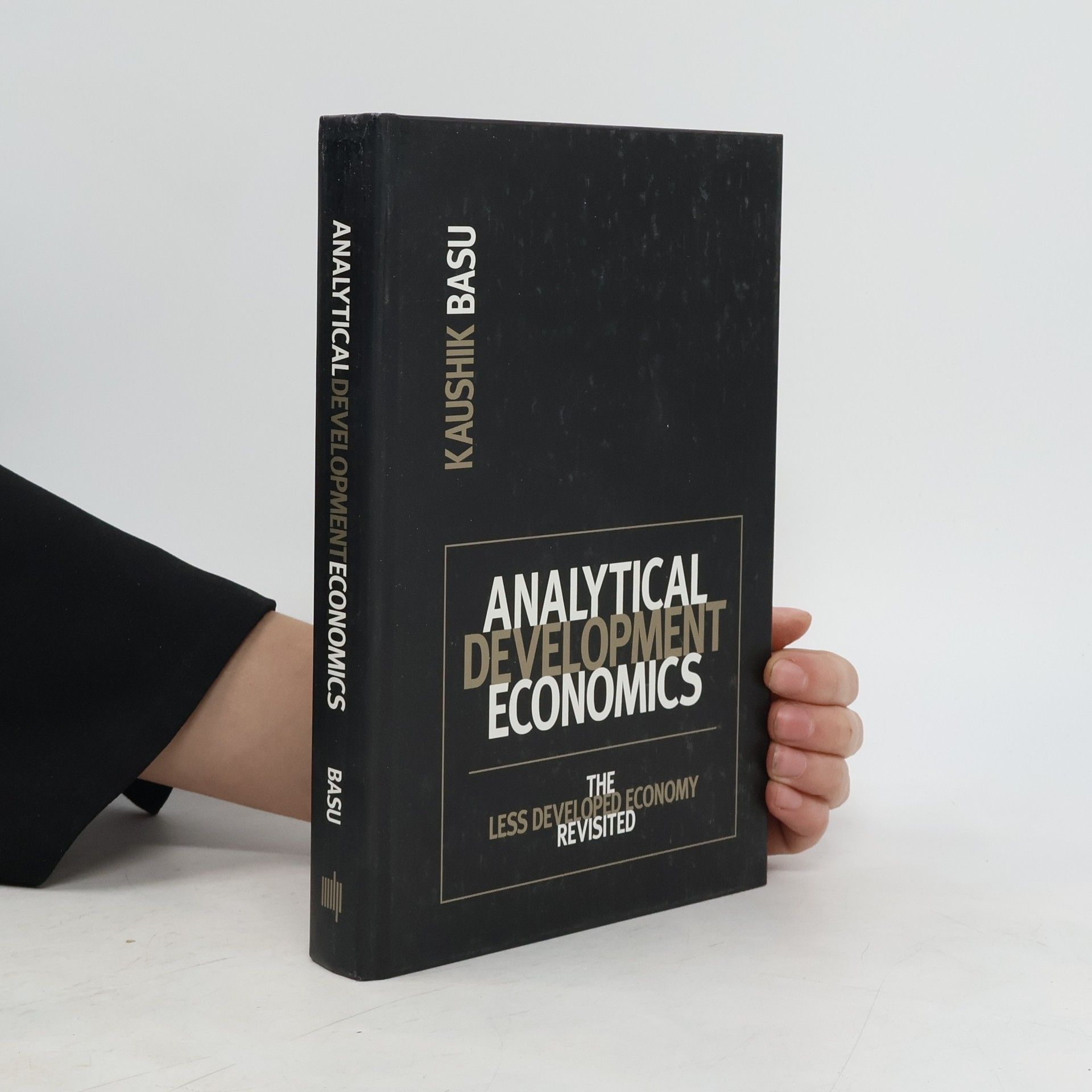Kaushik Basu Books
Kaushik Basu is an Indian economist whose work delves into fundamental questions of economic theory and its societal implications. His analyses often explore how institutions and social norms shape economic outcomes and human behavior. Basu emphasizes understanding the intricate interplay between individual choices and broader societal structures, aiming to illuminate paths toward a more equitable and effective world. Through his writing, he offers profound insights into the mechanisms that govern economic reality.






This is the story of Bandhan, the only bank that emerged in eastern India after Independence. Founded by the son of a sweet vendor, with a mere Rs 2 lakh, the sum total of his life savings.On 17 June, 2015, Chandra Shekhar Ghosh stepped out of the Reserve Bank of India building in Mumbai with the much-coveted banking licence, beating some of the country's top corporate houses. This moment compensated for all the frustrations that had come along the way. A year later, Bandhan Bank was launched with 6.7 million small borrowers.So, how did Ghosh build India's biggest MFI from scratch and then, along with his team, transform it into a universal bank? Bandhan: The Making of a Bank chronicles that journey.This is also Ghosh's personal story-of a boy growing up in small-town Agartala struggling with poverty, but relentless in his ambition to make it big. He battles competition, hostile moneylenders, a tough economic climate and the perpetual lack of resources. Nobody in India perhaps knows better than him the psyche of a small borrower and the alchemy of doing business with the poor, profitably.This is one of India's biggest entrepreneurial stories.
The Republic of Beliefs
- 264 pages
- 10 hours of reading
"[This book] argues that the traditional economic analysis of the law has significant flaws and has failed to answer certain critical questions satisfactorily. Why are good laws drafted but never implemented? When laws are unenforced, is it a failure of the law or the enforcers? And, most important, considering that laws are simply words on paper, why are they effective? Basu offers a provocative alternative to how the relationship between economics and real-world law enforcement should be understood. Basu summarizes standard, neoclassical law and economics before looking at the weaknesses underlying the discipline. Bringing modern game theory to bear, he develops a 'focal point' approach, modeling not just the self-interested actions of the citizens who must follow laws but also the functionaries of the state: the politicians, judges, and bureaucrats enforcing them. He demonstrates the connections between social norms and the law and shows how well conceived ideas can change and benefit human behavior. For example, bribe givers and takers will collude when they are treated equally under the law. And in food support programs, vouchers should be given directly to the poor to prevent shop owners from selling subsidized rations on the open market. Basu provides a new paradigm for the ways that law and economics interact: a framework applicable to both less developed countries and the developed world"--Jacket.
Reason to Be Happy
- 219 pages
- 8 hours of reading
Why do our friends have more friends than we do? How do you book the best available seats on a plane? And if jogging for ten minutes adds eight minutes to our life expectancy, should we still go jogging? The ability to reason is one of our most undervalued skills. In everyday life, the key is to put yourself in the shoes of a clever competitor and think about how they might respond. Whether you are dealing with events on the scale of the Cuban missile crisis or letting go of anger, leading economist Professor Kaushik Basu shows how game theory - the logic of social situations - can help us achieve better outcomes and lasting happiness. Full of fascinating thought experiments and puzzles, Reason to Be Happy is a paean to the power of rationality. If you want to have a good life and even make the world a better place, you can start by thinking clearly.
The Less Developed Economy
- 208 pages
- 8 hours of reading
This textbook examines critically the present state of theoretical development economics. It also discusses and formalizes some of thee more important traditional contributions, and so provides the necessary background for interpreting recent advances.
Der Rechtsstaat als Geflecht von Erwartungen
Eine neue Sicht auf Wirtschaft und Recht für eine gerechtere Zukunft
- 260 pages
- 10 hours of reading
In diesem Buch argumentiert Kaushik Basu, einer der führenden Wirtschaftswissenschaftler, dass die traditionelle ökonomische Analyse des Rechts erhebliche Mängel aufweist und kritische Fragen unzureichend beantwortet. Warum werden gute Gesetze formuliert, aber nicht umgesetzt? Ist das Versagen auf das Gesetz oder die Vollstrecker zurückzuführen? Und warum sind Gesetze, die nur Worte auf Papier sind, dennoch wirksam? Basu bietet eine provokante Perspektive auf die Beziehung zwischen Wirtschaft und realer Rechtsdurchsetzung. Er fasst die neoklassische Rechts- und Wirtschaftswissenschaft zusammen und beleuchtet deren Schwächen. Mit moderner Spieltheorie entwickelt er einen „Brennpunkt“-Ansatz, der die eigennützigen Handlungen der Bürger sowie die der Staatsfunktionäre - Politiker, Richter und Bürokraten - berücksichtigt. Er zeigt die Verknüpfungen zwischen sozialen Normen und dem Gesetz auf und demonstriert, wie durchdachte Ideen menschliches Verhalten beeinflussen können. Beispielsweise können Geber und Nehmer von Bestechungsgeldern kooperieren, wenn sie gleich behandelt werden. Bei Nahrungsmittelhilfeprogrammen sollten Gutscheine direkt an die Armen ausgegeben werden, um Missbrauch zu verhindern. Basu bietet ein neues Paradigma für das Zusammenspiel von Recht und Wirtschaft, das sowohl für weniger entwickelte als auch für entwickelte Länder relevant ist.